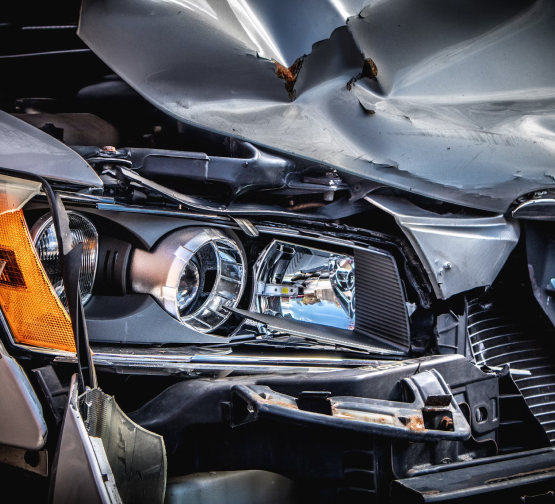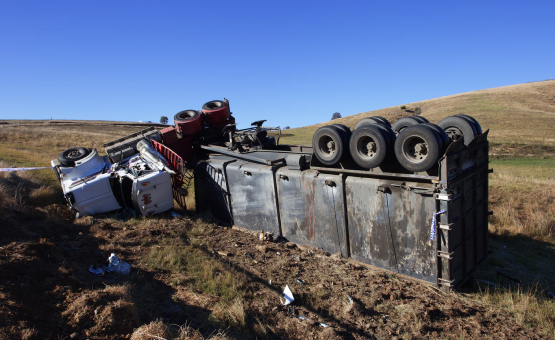Home » Practice areas » Personal Injury » Car Accidents
Table of Content

At the Law Office of Michael S. Braun, we represent seriously injured people, and surviving family members, victimized by auto accidents caused by others. We have many years of experience in pursuing these cases aggressively to obtain fair and timely compensation for our clients. Our combined experience and tenacity combine to produce results.
A lawyer can assist after a car accident in various ways, including:

If you are involved in a car accident, here are some steps to take:
Remember to remain calm and avoid admitting fault or making statements that could be used against you later. By taking these steps, you can help protect yourself and others involved in the accident, and begin the process of recovering from the accident.
A car accident can cause a wide range of physical and psychological injuries, including:
The extent and type of injuries sustained in a car accident can vary widely and depend on several factors, including the speed and force of the impact, the position of the occupants in the vehicle, and the use of seat belts and airbags.
Soft tissue injuries are a common type of injury that can occur after a car accident. These injuries involve damage to the muscles, tendons, and ligaments in the body. Common soft tissue injuries that can result from a car accident include:
Symptoms of soft tissue injuries may include pain, swelling, stiffness, and limited range of motion. These injuries may not always be immediately apparent after a car accident, and symptoms may take days or even weeks to develop. It’s important to seek medical attention as soon as possible after a car accident, even if you don’t immediately feel injured, to ensure that any soft tissue injuries are identified and treated promptly. A personal injury attorney can help you recover compensation for medical expenses, lost wages, and pain and suffering resulting from soft tissue injuries sustained in a car accident.
A traumatic spine injury is a serious and potentially life-altering injury that can occur as a result of a car accident. This type of injury can cause damage to the spinal cord, which is the bundle of nerves that runs from the brain down through the spine and controls the body’s movements and sensations.
Some common types of traumatic spine injuries that can occur after a car accident include:
Symptoms of traumatic spine injuries may include pain, numbness or tingling, weakness, difficulty moving, and loss of bowel or bladder control. Treatment for these injuries may include surgery, physical therapy, and pain management. Recovery from a traumatic spine injury can be a long and challenging process, and may involve significant medical expenses and lost wages. A personal injury attorney can help you recover compensation for these damages and work to ensure that you receive the medical care and support you need to recover to the fullest extent possible.
A traumatic brain injury (TBI) is a serious and potentially life-altering injury that can occur as a result of a car accident. TBIs occur when the brain is suddenly and violently jolted or shaken inside the skull, causing damage to the brain tissue.
Some common types of traumatic brain injuries that can occur after a car accident include:
Symptoms of traumatic brain injuries may include headache, dizziness, confusion, memory loss, difficulty concentrating, mood changes, and other neurological symptoms. Treatment for these injuries may include rest, pain management, physical therapy, and cognitive rehabilitation. Recovery from a traumatic brain injury can be a long and challenging process, and may involve significant medical expenses and lost wages. A personal injury attorney can help you recover compensation for these damages and work to ensure that you receive the medical care and support you need to recover to the fullest extent possible.
A mild traumatic brain injury (TBI) can occur as a result of a car accident when the head is suddenly and violently jolted or shaken inside the skull. This can cause the brain to move around inside the skull, leading to damage to the brain tissue.
Some common ways that a person can suffer a mild TBI in a car accident include:
Symptoms of a mild TBI may include headache, dizziness, confusion, memory loss, difficulty concentrating, mood changes, and other neurological symptoms. These symptoms may not always be immediately apparent after a car accident, and may take hours or even days to develop. It’s important to seek medical attention as soon as possible after a car accident, even if you don’t immediately feel injured, to ensure that any TBI is identified and treated promptly. A personal injury attorney can help you recover compensation for medical expenses, lost wages, and pain and suffering resulting from a mild TBI sustained in a car accident.
The damages that are recoverable after a car accident can vary depending on the specific circumstances of the accident and the applicable laws in the jurisdiction where the accident occurred. However, here are some common types of damages that may be recoverable after a car accident:
These damages may be recovered through negotiations with the insurance company, a settlement agreement, or through a court verdict. A personal injury attorney can help you determine what damages you may be entitled to recover and work to maximize your compensation.
The amount of time you have to file a lawsuit after a car accident is known as the statute of limitations, and it varies depending on the state where the accident occurred. In California, the statute of limitations for personal injury claims arising from a car accident is between 2 years.
It’s important to be aware of the statute of limitations in your state, as failing to file a lawsuit within the specified time frame could result in your case being dismissed. Additionally, it’s important to note that the process of investigating and preparing a personal injury lawsuit can take time, so it’s best to consult with a personal injury attorney as soon as possible after the accident to ensure that you have enough time to file your claim within the statute of limitations.
Determining liability after a car accident typically involves reviewing the facts and circumstances surrounding the accident to determine who was at fault. Here are some steps that may be taken to determine liability:
Liability for a car accident can be shared among multiple parties, or it can be primarily the fault of one driver. A personal injury attorney can assist with investigating the accident and determining liability, as well as representing you in negotiations with insurance companies or in court to help you receive the compensation you are entitled to.
If you were in a car accident that was not your fault and want to get maximum compensation, here are some steps to consider:
By taking these steps, you can increase your chances of getting maximum compensation for your injuries and damages after a car accident that was not your fault.
Content, including images, displayed on this website is protected by copyright laws. Downloading, republication, retransmission or reproduction of content on this website is strictly prohibited. Terms of Use | Privacy Policy